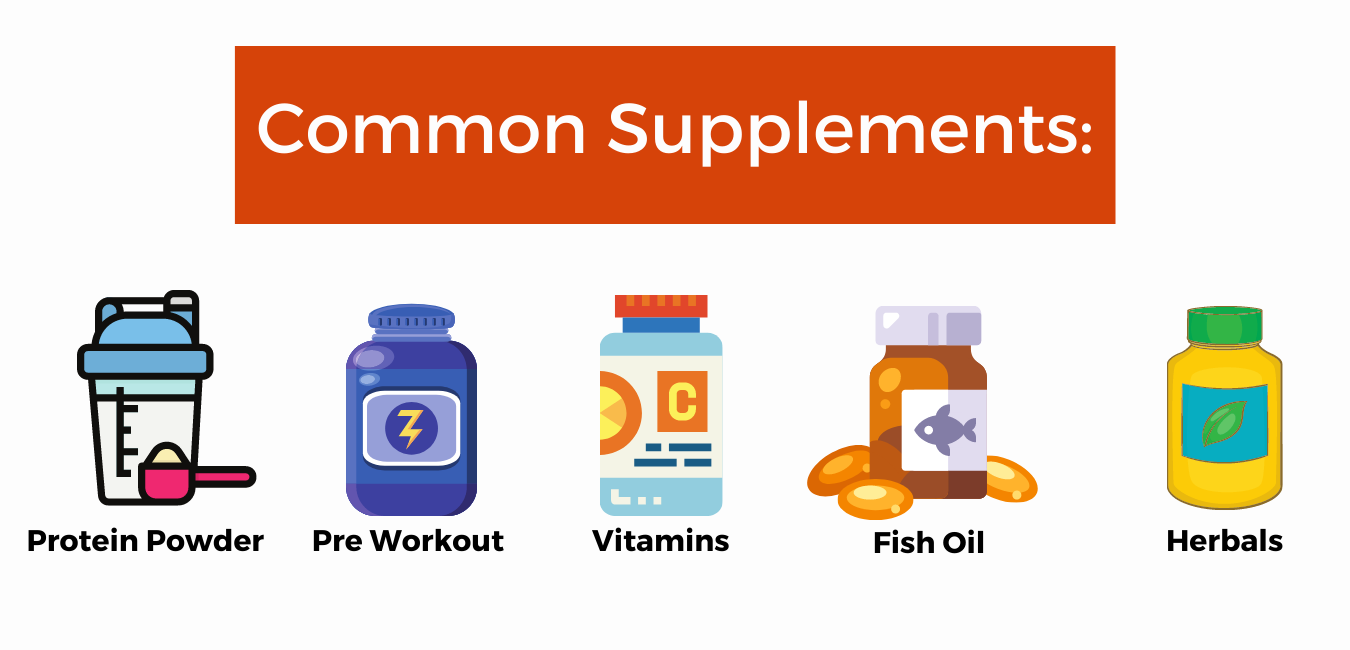Dietary Supplements
Use the previous and next slide buttons to navigate through the gallery or see the page for text descriptions.
How to choose Dietary Supplements
Selecting the safest options
What is a dietary supplement?
Dietary supplements, or “supplements,” are taken to provide nutrients to your body. This includes vitamins, minerals, amino acids, enzymes, and herbals. They are sold in the form of tablets, capsules, powders, energy bars, and liquids.
Do I need to take a dietary supplement?
Some of us may need to take a dietary supplement like iron, prenatal vitamins, or calcium depending on our health status, stage of life, or medical history. However, many of us can meet our needs through a balanced diet! Before taking a supplement, take a look at your food intake and identify ways you can increase that specific nutrient with food.
What are some common supplements?
Some commonly consumed dietary supplements within the college population are protein powder, pre-workout powder, multivitamins, fish oil, probiotics, melatonin, and biotin.
Are supplements safe?
According to the Food and Drug Administration (FDA), federal law does not require dietary supplements to go through pre-market regulation. This means that some dietary supplements may not meet FDA safety standards before they hit the shelf. Though many are harmless, some dietary supplements have been recalled for containing the wrong ingredients, less of a certain ingredient than stated, and containing heavy metals, pesticides, or harmful microbes.
How do I find a safe supplement?
Here are a few steps to follow to ensure the supplement you are buying is safe:
- Check for 3rd party regulation certifications such as USP or NSF. This means that an unbiased regulatory company has ensured the supplement has met rigorous manufacturing standards, contains the ingredients stated, and that it is safe for consumption.
- If it sounds too good to be true, it probably is! Dietary supplements are not intended to treat, diagnose, prevent, or cure diseases.
- Always talk with your primary care provider before starting a new dietary supplement. They will make sure no medication interactions or adverse effects will take place between the dietary supplement and your current medication.
- Do your research! Before purchasing or consuming a dietary supplement, research it using noncommercial and unbiased sites like NIH, FDA, and USDA.







